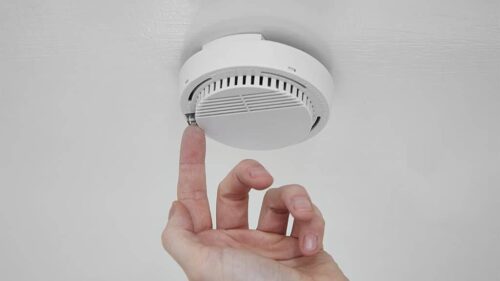ONE: SMOKE ALARMS AREN’T ALWAYS RELIABLE
Smoke alarms aren’t always reliable, which is why a professional inspector can make your job easier and life safer. A good inspection considers adequate positioning and operational status to protect your property. After all, some smoke alarms don’t last, and even the most expensive brands are unreliable without planning.
TWO: NEW HOUSES ARE STILL VULNERABLE
Old houses always seem more vulnerable to fire, but it’s wrong to assume that new or newer homes are completely safe. In point of fact, sometimes they’re more dangerous.
Yes. That’s right. The modern house can be a firetrap. As one American expert points out: “There are a variety of things that cause that. We have furniture made from synthetic materials, so the smoke is toxic when anything burns. We have lightweight constructions, so the materials burn more quickly. Open concept houses mean the fire travels through a building much faster.”
For sound professional advice, contact Jim’s Building Inspections.
Conclusion
Smoke alarms are a critical first line of defence against fire, but their effectiveness depends on proper installation, maintenance, and regular inspections. Both new and old homes can be at risk, so relying solely on alarms without professional assessment can be dangerous. Ensuring your smoke alarms are functional and strategically placed protects your property and lives. Regular checks and professional inspections are essential for reliable fire safety.
FAQs
Smoke alarms should be tested at least once a month by pressing the test button. Regular testing ensures the battery and sensors are functioning properly, keeping your home safe.
Most smoke alarms last 8–10 years. Over time, sensors can become less sensitive, so replacing alarms in accordance with the manufacturer’s guidelines is crucial.
Smoke alarms should be installed in every bedroom, outside sleeping areas, and on every level of the home. Proper placement ensures early detection wherever a fire starts.
Yes, dust, cobwebs, or debris can interfere with smoke detection. Clean alarms regularly with a soft brush or vacuum to maintain reliability and prevent false alarms.
Professional inspections can identify placement or functionality issues you might miss. Experts ensure alarms meet legal safety requirements and operate effectively in an emergency.
Yes, the test button simulates a fire condition to verify the sensor and alarm function. This allows you to ensure proper operation without any danger.
Wired alarms are generally more reliable as they are hardwired into your home’s electrical system, but they still require battery backups. They offer consistent protection and can be interconnected easily.



